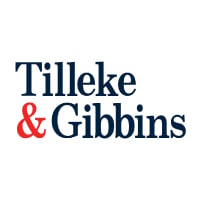

Chief legal officer | Dusit Thani






Chitanong Poomipark
Chief legal officer | Dusit Thani
Team size: Ten
What are the most significant cases, projects and/or transactions that you and/or your legal team have recently been involved in?
Over the past year, my team has been a key driver in the completion of major transactions for Dusit International. A key achievement was the successful completion of a real estate investment trust (REIT) buy-back for two prime hotel properties valued at over ฿1 bn. This intricate process involved detailed negotiations, thorough due diligence on both the assets and the REIT structure, and the careful drafting and reviewing of numerous agreements to ensure a smooth transition and align with our long-term portfolio strategy.
Simultaneously, we finalised a profitable divestiture deal worth millions of US dollars. This required navigating complex legal frameworks and structuring the transaction to maximise returns while effectively managing potential risks. This success underscores our ability to strategically optimise our asset portfolio.
Beyond these specific transactions, my team is consistently engaged in a broad range of activities. This includes supporting our global expansion through advice on international joint ventures and the establishment of new properties, demanding a strong understanding of diverse legal systems and cross-border transaction management.
We also actively navigate the evolving regulatory landscape in the hospitality sector, encompassing data privacy, environmental compliance, and labor laws across our operating regions. Furthermore, we proactively manage potential disputes and litigation to protect the company’s interests while seeking pragmatic solutions. Finally, we provide strategic legal counsel to the executive leadership on corporate governance, intellectual property, and risk management. Our focus remains on delivering proactive and commercially sound legal advice that supports Dusit’s strategic objectives and safeguards its interests in today’s complex global environment.
How do you approach managing legal aspects during periods of instability or crisis to ensure the organisation’s resilience?
My approach to managing legal aspects during instability or crisis prioritises organisational resilience through proactive risk assessment, clear communication, and adaptable legal strategies.
Firstly, we intensify our risk assessment, closely monitoring the situation to identify potential legal and contractual implications. This includes reviewing contracts for force majeure, assessing potential breaches, and anticipating new regulations to develop effective mitigation plans.
Secondly, clear and consistent communication is paramount. Internally, we ensure the executive team and relevant departments are informed of legal implications and recommended actions through timely and understandable guidance. Externally, we maintain transparent communication with partners, suppliers, and customers regarding our legal obligations and operational adjustments.
Thirdly, we employ adaptable legal strategies, exploring alternative dispute resolution, renegotiating contracts where feasible, and seeking available government relief measures. Our team remains agile and creative in finding legal solutions that minimise disruption and protect long-term interests. Furthermore, we reinforce our commitment to compliance and ethical conduct, ensuring all crisis response measures adhere to applicable laws, safeguarding our reputation and preventing future legal issues.
Finally, we leverage technology and knowledge management for business continuity within the legal department, including secure remote access and up-to-date information on legal developments.
By focusing on proactive risk assessment, clear communication, adaptable strategies, unwavering compliance, and technology, we aim to navigate instability effectively and bolster Dusit International’s long-term resilience.
What strategies do you employ to ensure the successful digital transformation of a legal department while maintaining compliance with your country’s data protection laws?
To ensure the successful digital transformation of the legal department while maintaining compliance with Thailand’s Personal Data Protection Act (PDPA), I employ a multi-faceted strategy
Firstly, we conducted a gap analysis on processes and data handling practices. This helps us identify areas where digitalisation can improve efficiency and where we need to strengthen our data protection measures.
We invest in secure and compliant technology solutions. This includes implementing document management systems with robust access controls and encryption, utilising secure communication platforms, and exploring AI-powered tools for tasks like contract review and legal research that adhere to PDPA principles.
Data privacy is integrated into our digital transformation roadmap from the outset. We do not view compliance as an afterthought but as a fundamental design principle. This means embedding privacy-by-design and privacy-by-default principles into our new digital workflows and systems.
We also work with our data privacy officer and learning and development team on comprehensive training and awareness programs that are crucial for the legal team and any other departments that interact with our digital legal systems. This ensures that all personnel understand their responsibilities under the PDPA and are proficient in using the new digital tools in a compliant manner.
We establish clear data governance policies and procedures that outline how personal data is collected, processed, stored, and deleted within our digital environment. This includes defining roles and responsibilities for data handling, implementing data breach response protocols, and establishing mechanisms for individuals to exercise their rights under the PDPA.
We maintain ongoing monitoring and auditing of our digital legal systems and data protection practices to ensure continued compliance. We also stay abreast of any interpretations or amendments to the PDPA to adapt our strategies accordingly.
By adopting this holistic approach, we aim to leverage the benefits of digital transformation within the legal department while upholding the highest standards of data protection compliance under Thai law, fostering trust and security for all stakeholders.
How can general counsel foster a corporate culture that supports ESG principles and compliance across all levels of the organisation?
As the chief legal officer, fostering an ESG-supportive corporate culture at Dusit International requires a comprehensive strategy.
Leading by example is crucial. The legal department must champion ESG in its operations, promoting sustainable practices, ensuring ethical conduct, and proactively advising on ESG risks and opportunities.
Embedding ESG into core governance documents and policies is vital. We work with the Board and executive leadership to integrate ESG principles into our mission, values, code of conduct, and relevant policies across all departments, establishing a clear framework and accountability.
Comprehensive ESG training and awareness programs for all employees are essential. These programs should articulate the importance of ESG, explain legal requirements, and provide practical guidance on contributing to our goals in their roles.
Cross-functional collaboration is key. The legal department works closely with sustainability, operations, finance, human resources, and other teams to integrate ESG into their strategies and processes, including participating in risk management and ESG committees and ensuring legal alignment of reporting.
Promoting ethical conduct and whistleblowing is fundamental. Employees should feel safe reporting potential breaches without fear of retaliation, with clear procedures for handling such reports and ensuring appropriate action. Staying abreast of evolving ESG regulations and best practices is an ongoing responsibility. We proactively monitor developments, assess implications, update policies, and engage with industry peers to learn and contribute to the broader ESG conversation.
By consistently implementing these strategies, I trust that we can cultivate a corporate culture where ESG principles and compliance are deeply ingrained, mitigating risks, enhancing our reputation, strengthening stakeholder relationships, and contributing to Dusit International’s long-term sustainability.
Chief legal officer | Dusit International
Chief legal officer | Dusit Thani
Chief legal officer | Dusit International